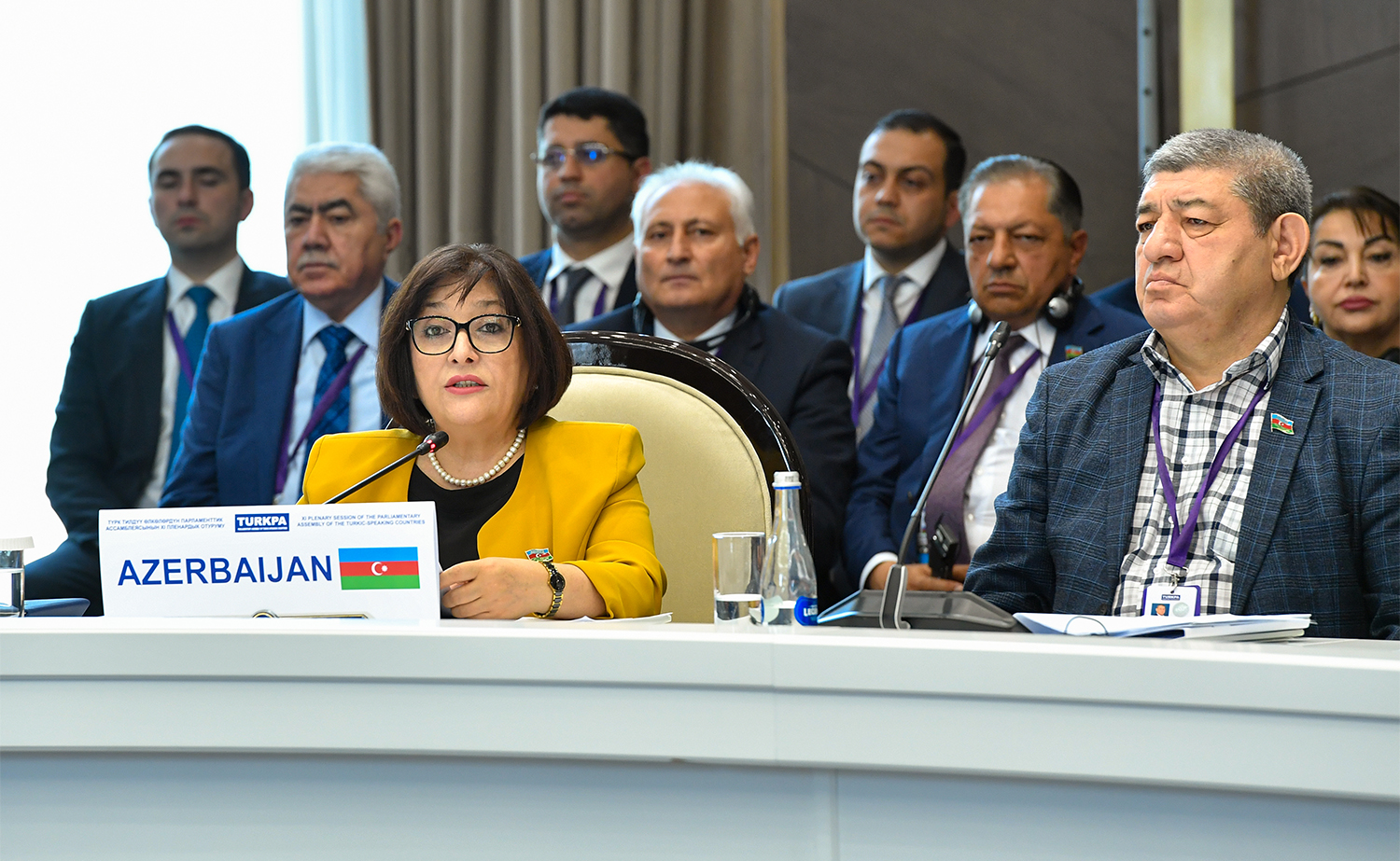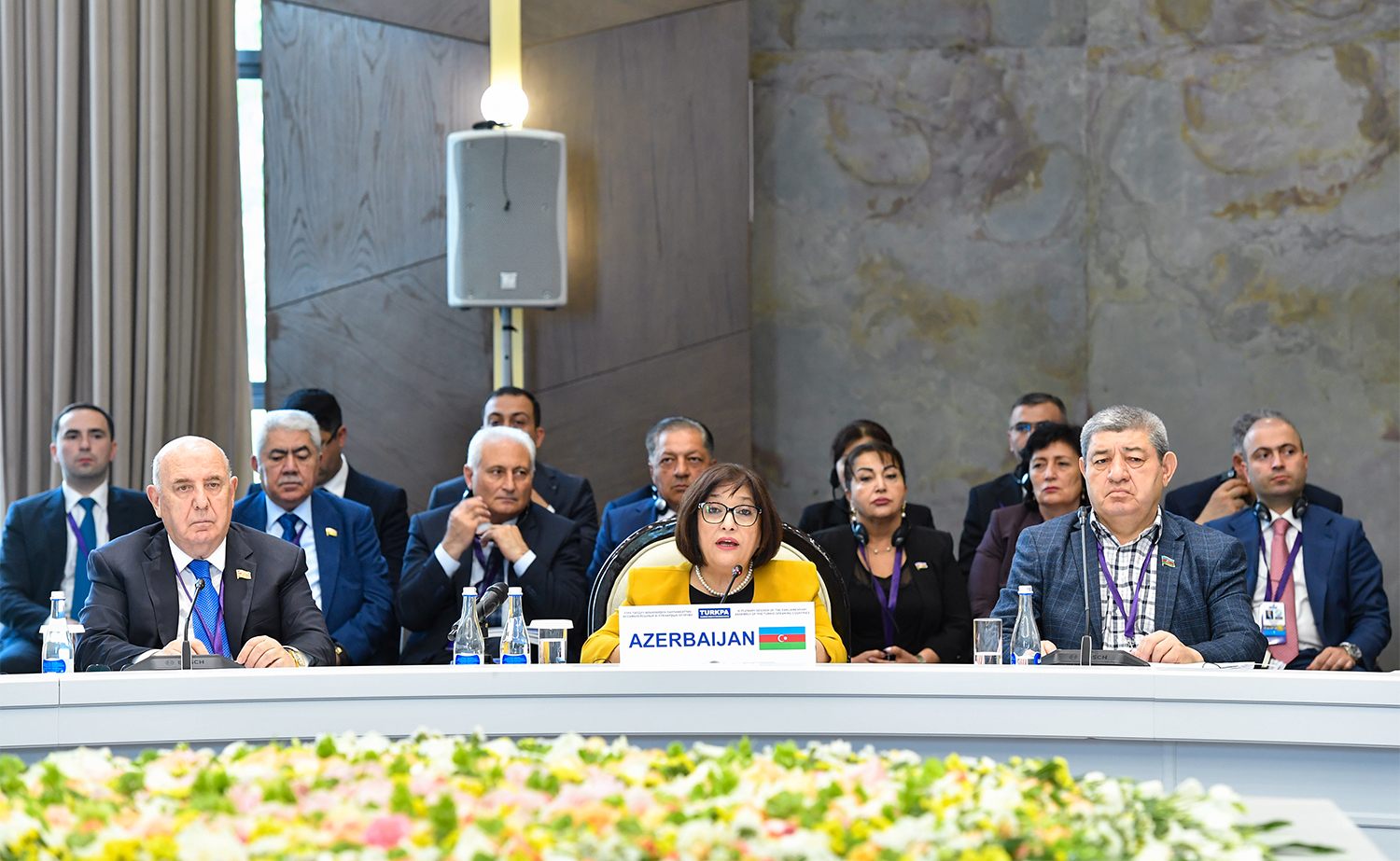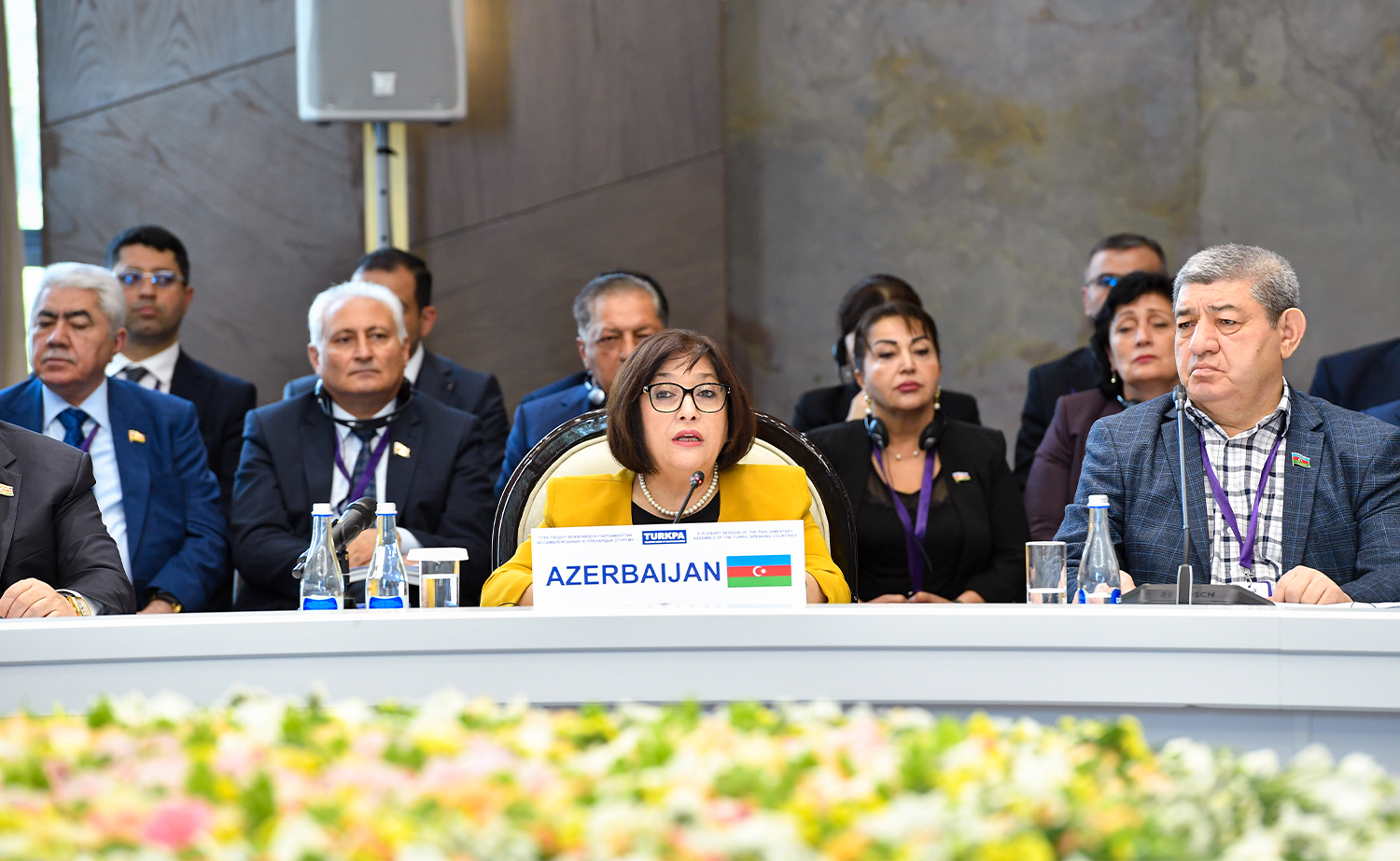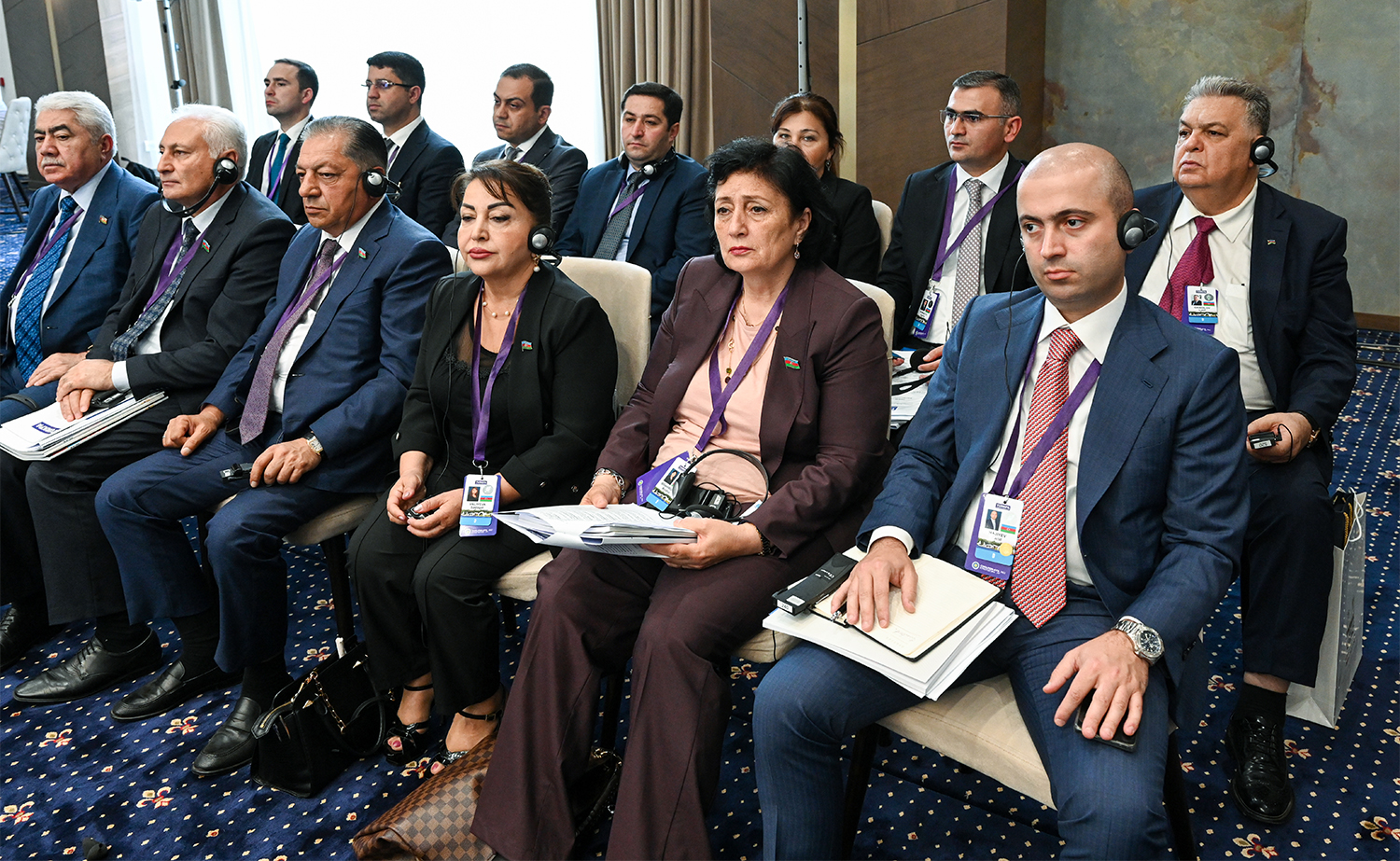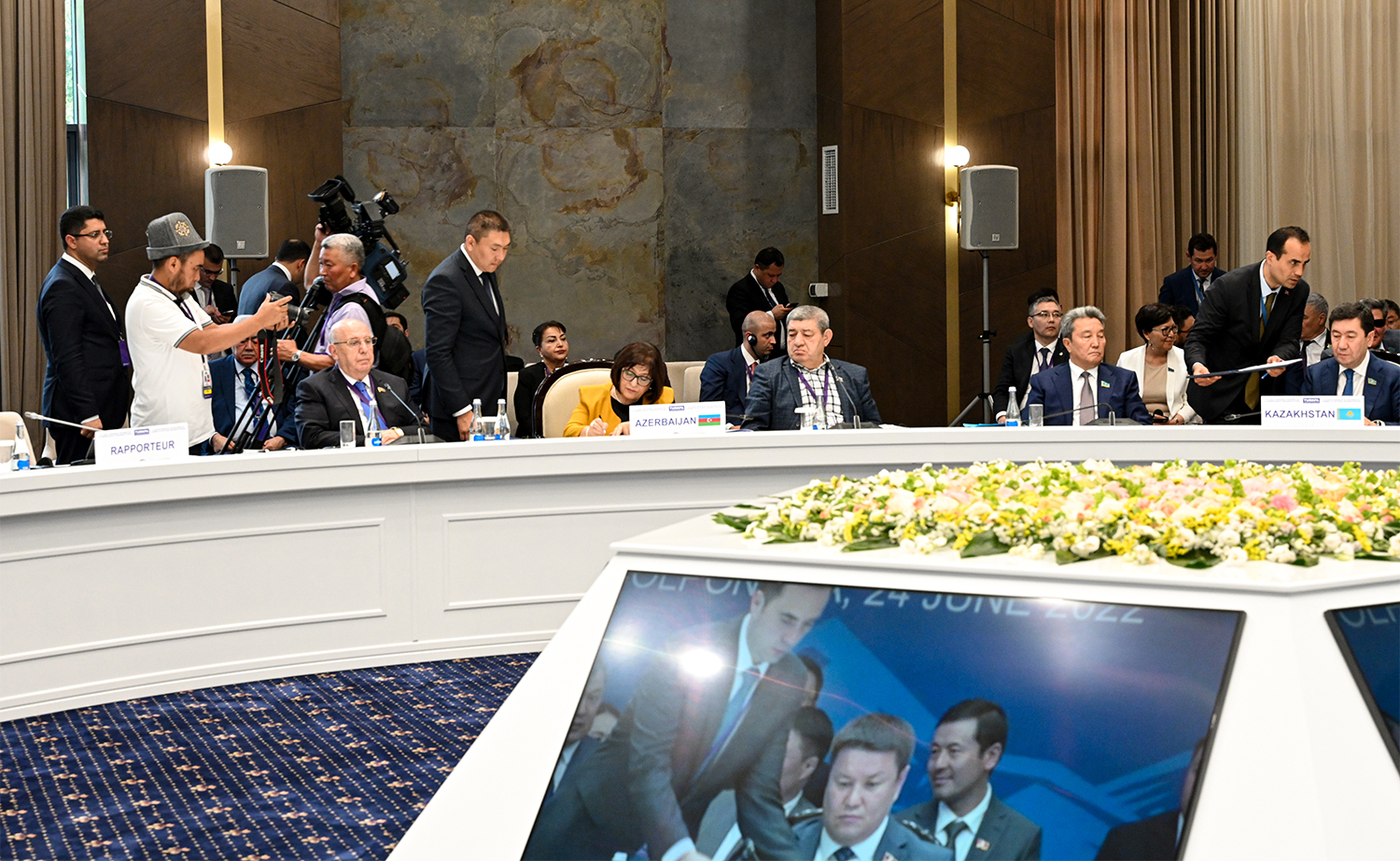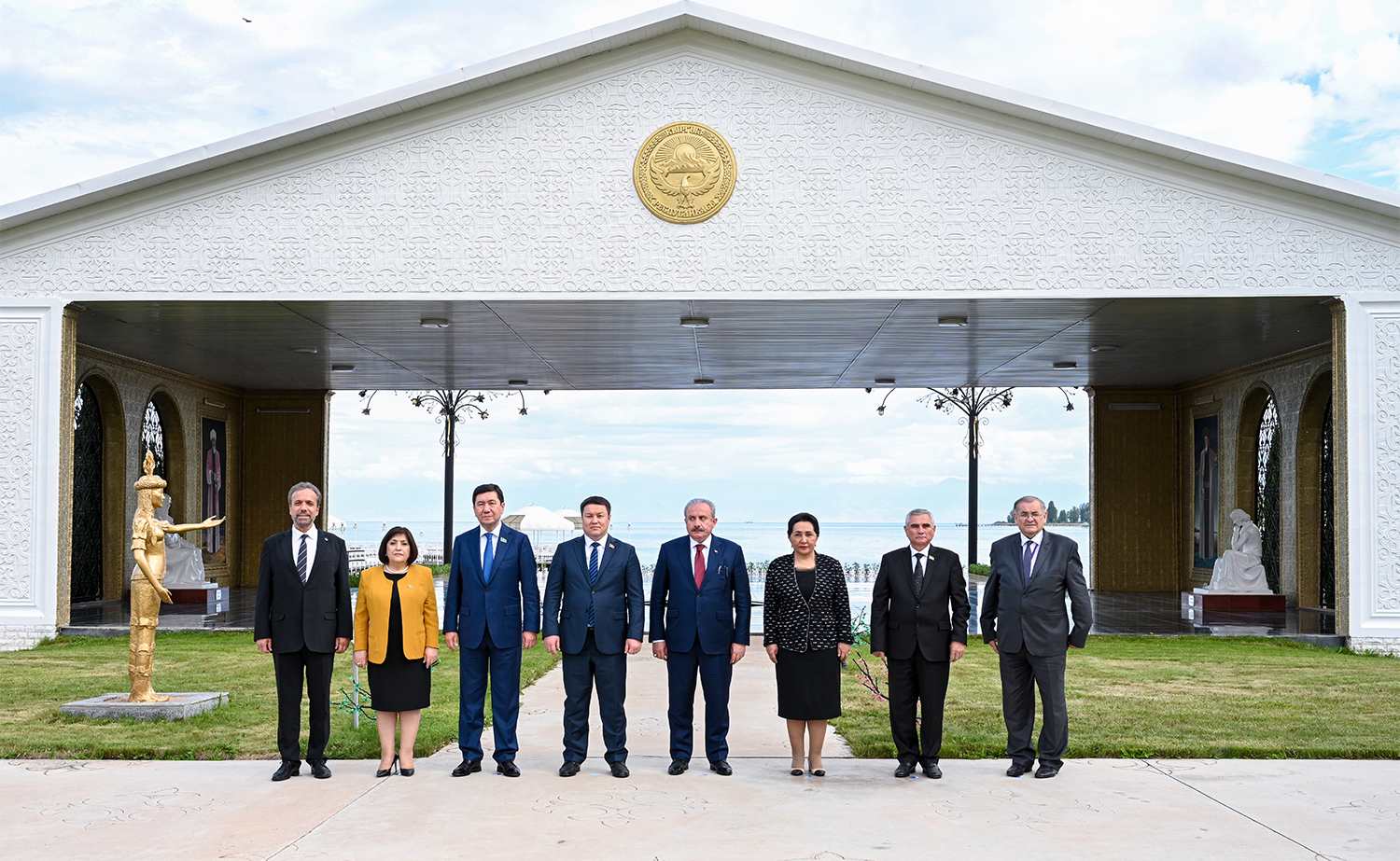The 11th Plenary Sitting of Parliamentary Assembly of Turkic-Speaking Countries is Held in Cholpon-Ata in Kyrgyzstan
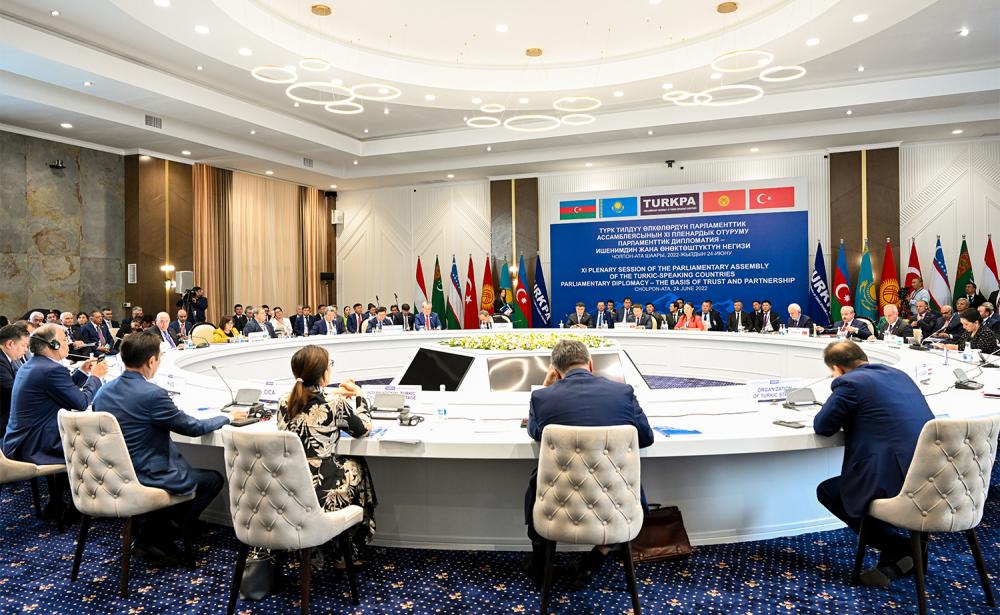
The 11th plenary sitting of the Parliamentary Assembly of Turkic-Speaking Countries (TurkPA) was held in the town of Cholpon-Ata in the Kyrgyz Republic on 24 June.
Chair of the Milli Majlis Sahiba Gafarova delivered a speech titled Parliamentary Diplomacy as the Basis for Trust and Partnership there.
Sahiba Gafarova drew attention to the 11th plenum taking place at a time when tense geopolitical developments jeopardised the world order and the international rules formed over long years. Beyond any doubt, she went on, those processes concern our fraternal and friendly states and peoples whilst also necessitating combination of our forces so we can fend them off. On the other hand, the growing geostrategic importance of the Turkic states and the importance of cohesion and co-operation amongst the members of the Turkic peoples’ family come to the fore. The idea of solidarity of the Turks that has always engrossed the minds of the Turkic World thinkers is beginning to take a palpable shape and features already; it is crucial that the Turkic unity should be backed by governments and parliaments in order for our peoples to become an organised force. One could safely say that the significance of the work that the Parliamentary Assembly does for our friendly and brotherly peoples that come from the same root and adhere to the same national foundations is stretching beyond the boundaries of the area occupied by our countries.
The international parliamentary organisations, the pillars of parliamentary diplomacy that they are, are helping, in our time, to generate concerted approaches to a long list of problems. The parliamentary unions should appropriately be regarded as working mechanisms to ensure political unity of the participating states and, in this connexion, the Parliamentary Assembly of Turkic Countries has been able to prove with its work of the past years that it was efficacy as long as bringing our peoples as close as possible is concerned. According to the Chair of the Milli Majlis, the co-operation within the Assembly has provided for yet deeper political, economic, cultural and other connexions amongst our countries whilst also having birthed and buttressed an environment of trust and partnership.
The Assembly’s participating legislatures have a tremendous role to play in the political and social lives of their countries. Their operation as a whole assembly helps formulate manners in which the shared goals can be achieved, Sahiba Gafarova continued. The TurkPA benefits by the opportunities provided by our historical, linguistic and cultural community to act as a platform bearing a mutually advantageous dialogue about the problems that all our peoples and countries are forced to tackle.
At the same time, the work done by the Assembly clears the path to using the wealth of potential of parliamentary diplomacy for the sake of furthering the political, trading and economic, and cultural and humanitarian bonds between our countries. Bilateral and multilateral projects, be it those accomplished already or waiting to be handled with the support of our parliaments, amongst other things, as well as mutual investments are all aimed at creating a unified transport and communication system, building the economic, energy, financial and banking & credit infrastructure, and achieving other goals. The logistical systems that carry the Caspian crude oil and natural gas to world markets have become important components on the European energy map. Being splendid examples of regional co-operation, those projects and others like them serve the progress of our states and nations and, at the same time, bring the Turkic states closer together.
In her speech, Mrs Gafarova also mentioned the fundamental resolutions made at the 8th summit of the Co-operation Council of Turkic-Speaking States in Istanbul in November last year – including the decision to rename the organisation as the Organisation of Turkic States. That, she pointed out, had been another manifestation of the Turkic states leaders’ adequate response to modern challenges. In this sense, the big victory won by Azerbaijan in the 44-day Patriotic War that had lasted from September till November 2020 should be classified as a yet further factor driving our countries’ unity and cohesion further, Mrs Gafarova stressed.
As she was telling her audience about the pains taken by Azerbaijan to establish lasting peace and stability, and co-operation amongst the countries of our region, Sahiba Gafarova emphasised that immediately upon the recovery of her lands from occupation our country started their restoration and by her own means, too. All the towns and villages, all the monuments of history and culture, all the shrines and temples and the whole infrastructure devastated by Armenia during the occupation period are being built from scratch. New towns and villages are being constructed in Garabagh and East Zangazur that have been declared a green energy zone. The return of the former IDP to their homelands, to their ancestral homes will be set in motion as soon as this year.
The intensive mining of the liberated lands by Armenia whilst they were in captivity is the biggest hurdle to the current work. More than 210 civilians and military have been either hurt or killed by mine explosions since 10 November 2020. Azerbaijan is one of the most mine-contaminated countries in the world and yet, it is also lamentably amongst those countries that are in receipt of the least international help with de-mining.
Azerbaijan’s putting an end to the occupation of her land gave birth to new realia in the region and gave it new prospects, according to Sahiba Gafarova who accentuated the point that the launch of the Zangazur Corridor as a new transport infrastructure component pursuant to the already-secured arrangements would repair geographical links in the Turkic World and, consequently, would serve generously the cause of making the co-operation amongst our countries stronger still.
Azerbaijan continues her efforts to secure strong peace, stability and collaboration in her region. It is Azerbaijan, which had faced the Armenian occupation for three decades and had come out of war triumphantly, is putting peace initiatives forward, because we want to talk about peace and co-operation rather than martial matters. Having said that, Mrs Gafarova added hopefully that Armenia would honour its part of relevant obligations and take tangible and constructive steps to build civil bilateral relations fitting the 21st century.
Sahiba Gafarova concluded her speech by referring to the great potential of joint operations in the Parliamentary Assembly of Turkic Countries and by stating her confidence that the potential would materialise in the form of more and more new undertakings in the name of the common interests of our peoples and countries.
The other speakers at the 11th plenum were Chairman of the Grand National Assembly of Turkey Mustafa Şentop, Chairman of the Mazhilis of the Kazakh Parliament Yerlan Qoşanov, Chairman of the Joğorqu Keñeş of Kyrgyzstan Talant Mamytov, Chair of the Oliy Majlis of Uzbekistan Tanzila Narbayeva, Deputy Chairman of the Halk Maslahaty (People’s Council) of the Milli Geňeş (National Council) of Turkmenistan Kasymquli Babayev, the leader of the delegation of Hungary’s National Assembly Sándor Lezsák and the representatives of the Turkic co-operation organisations.
Then, a number of organisational matters were considered and appropriate decisions were made. A protocol of renaming the TurkPA as the Parliamentary Assembly of Turkic States was signed.
The eleventh TurkPA plenum in Cholpon-Ata was capped with the adoption of the Cholpon-Ata Declaration.
The Press and Public Relations Department
The Milli Majlis



